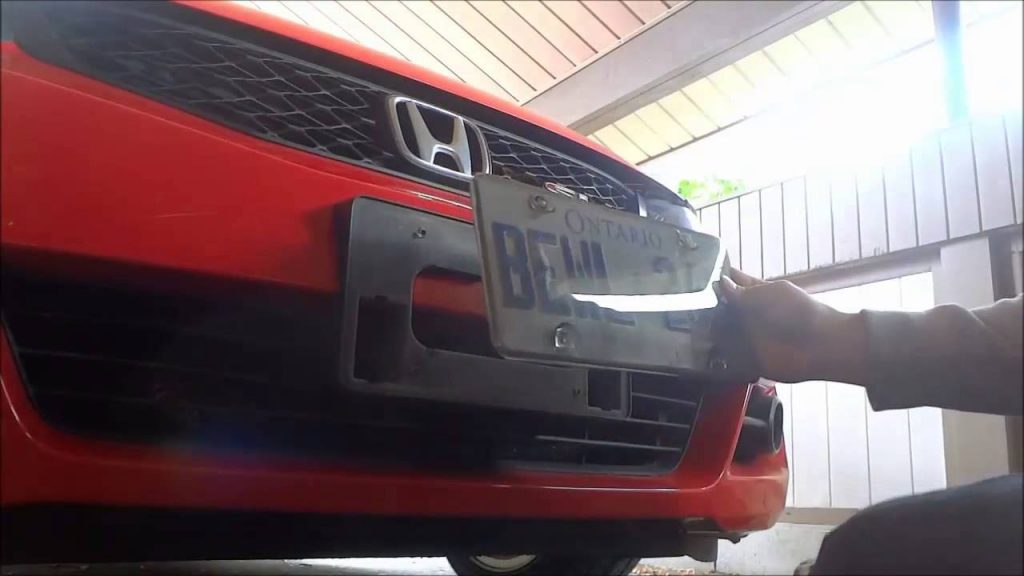Got a license plate that looks really cool? You’ve probably enjoyed having it there for a good few years, hassle-free. However, it’s time you took it down.
When you buy a new car, it’s commonplace for the dealership to affix a license plate cover. Usually, the dealership puts it there as an advertisement, but drivers will also be aware that covers also stop their plates from getting bent out of shape in car washes.
And sometimes the owner prefers to purchase their own license plate cover. Perhaps they want to show their support for their hometown team, or maybe they just want to display a humorous slogan. Whatever the case, the bad news is that license plate covers are now being made illegal across the U.S.
How come? Let’s take a look …
The New Illegality of Licence Plate Covers
U.S. states are adopting toll-booth free toll roads. As such, each state needs to be able to have a good, clear look at the plate of each vehicle that sweeps past their transponder reading machines.
Of course, most drivers make sure to comply with the law by mounting a transponder on their windshield. But in 2019 and onwards, the states is looking to recoup all revenue from each car that passes their electronic readers.
And because some drivers don’t have a transponder (or perhaps theirs has become worn over time), the camera that reads the license plate is now the backup plan – and U.S. states thus want drivers to keep their license plates fully visible.
There are two primary reasons for this:
- License plate information that is easily identifiable is crucial to highway safety
- License plate information that is easily identifiable
Is This Really A New Thing?
No.
In fact, many states actually outlawed license plate covers some time ago. The reason back then was that police departments adopted automatic plate readers that were able to instantly read and run the plate of all passing vehicles. Thus, the police wanted to make sure that each plate was clearly visible, and as such they persuaded the lawmakers to ban any cover of any kind. This didn’t matter whether the cover interfered with the functionality of the plate reader or not.
That said, the police have now made it clear that this an issue about money. If car owners use license plate covers, they are able to evade tickets and tolls more easily. As Const. Jason Doucette, Vancouver police spokesman, put it: “It’s important that plates be visible and readable from all angles, as designed. A lot of the covers are used in an attempt to defeat toll cameras from accurately capturing their plate in order to avoid financial costs.”
Over in Massachusetts, efforts have already been put in place to make sure motorists are meeting the new rule. Here, inspection station technicians have already begun the process of removing plate covers from car owners’ vehicles. Any vehicle that had a license plate cover had zero chance of passing going forward. Instead, the station removes them and replaces them with proper fasteners. The vehicle owner doesn’t have to pay anything extra.
The Law Isn’t Always So Clear …
With all that said, there might be exceptions when you can use a license plate cover legally.
The law on tinted plates, for example, is unclear in some states, and it’s often up to the police’s own discretion at the time whether or not you should be fined. In Massachusetts, for example, the ruling states:
“This court concluded that a license plate cover, tinted or not, does not violate clear language of G. L. c. 90, 6, or its implementing regulation unless it obscures the registration numbers of the vehicle on which it is placed, or reduces the legibility or substantially diminishes the reflective quality of the license plate.”
Essentially, if an officer cannot read your plate, they might charge you. Or, at the very best, you could get off with just a warning.
The law observes that it is illegal when a license plate cover “obstructs the license plate by reflecting headlights, or where a license plate of plate cover is dirty, damaged or discolored and the license plate is not clearly visible.”
But then there’s the issue of clear plastic covers. As long as the whole of your plate is “visible at all times,” you can get away with using a clear plastic cover. But this is entirely down to your own discretion, and if an officer decides that – according to their discretion – what you’re doing is still illegal, you could be fined.
Alternative to License Plate Covers
A cool alternative to license plate covers are license plate frames. They have become a popular option among drivers who want to change their license plate, legally.
You can find many different styles of frames for your car. Some can be purchased premade with a chosen design, or you can have your license plate frame custom made.
Conclusion
License plate covers are fast becoming illegal across the U.S. While it sucks that your favorite plate cover will have to be taken down, there’s the option of using clear covers. Even then, you’re taking a big risk. The best advice? Just do what the law says and make sure your plates are fully visible at all times.
—–
This guest post contribution is courtesy of SignMission, an American owned, operated and manufactured company in Florida. Signmission offers many types of custom signs such as moving sale banners, aluminum signs, vinyl banners and other types of signage.

